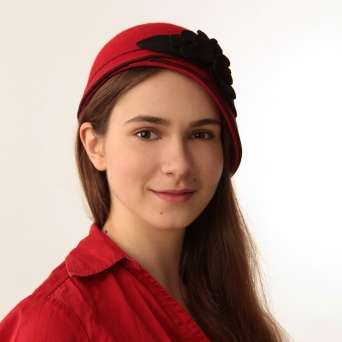To most opera fans, there is only one La bohème – Puccini’s smash hit, the sixth-most-performed opera in the world, according to our annual statistics. This makes the other Bohème (by Leoncavallo) the perfect candidate for West Edge Opera's “Doppelgänger season”. And West Edge Opera’s concert performance makes a compelling case for this varied, nuanced score.
Puccini may have stolen the idea of a Bohème opera from Leoncavallo! Although Puccini’s work premiered first (in 1900, a year before Leoncavallo’s), Leoncavallo began adapting Murger’s novel first and even showed his work in progress to Puccini. A nasty battle of newspaper statements followed, with Leoncavallo asserting his priority and Puccini claiming innocence and ignorance, adding “What does this matter to him? Let him compose, and I will compose. The public will judge.”
The public has judged, but has it judged fairly? There is little to separate the two operas in terms of plot. Both tell the familiar story of Bohemian artists and their fleeting loves. In Leoncavallo’s libretto, Musetta has both a more prominent role and a more sympathetic character, while Mimì is less honest (secretly leaving Rodolfo for a rich and noble lover). Rodolfo is not the emotionally abusive boyfriend of Puccini’s opera, though Marcello and Schaunard more than make up for Rodolfo’s decency with their violent outbursts towards their girlfriends. Leoncavallo’s libretto is also busier – more plot points and character development are crammed into three hours, and there are often several narratives playing out on stage at once.
Where the operas really differ is in their music. Puccini’s score is melodramatic, full of soaring melodies and crashing chords that emotionally manipulate. Leoncavallo’s score is wider-ranging, with a slower dramatic arc (though it provokes just as many tears in the end). The first two acts are littered with pastoral ditties, sweetly lyrical duets, a patter quartet, and a comical warring chorus. The third act develops a highly dramatic style. Schaunard affects pseudo-grandiose tragedy when it comes to his hunger, but Musetta's big-voiced and richly textured aria is truly tragic as she decides whether to leave Marcello. Mimì gets an expansive, heavy set piece as well, where she expresses her desire to return to Rodolfo. The musical idiom becomes lighter again for the opera’s touching ending, turning more harmonious as the lovers reconcile and fading as Mimì does.
In West Edge Opera’s semi-staged concert, each bohemian had a distinctive character. Colline (Ryan Bradford) spouted lists of facts in a controlled bass while everyone else ignored him. Schaunard (Michael Orlinksky) frequently held the floor with his insufferably self-important pronouncements. Orlinksky sounded appropriately commanding and achieved a nice resonance, though there was also an unpleasantly tight quality to his tone. His performance of his composition about the influence of the color blue on art was a riot, with impeccable air-piano playing and overdone gestures and trills.
Marcello, sung by Alex Boyer with smooth legato and a bright but balanced tone, came across as a desperate romantic: inexperienced, besotted, clinging. His threat to kill Musetta when she left him was frighteningly credible. Buffy Baggotte sang Musetta (a mezzo role) with feeling and flexibility. Her operetta-style arias in the first two acts were delivered with playful agility, while her third-act aria and duet showed a powerful voice with a rich tone. Rodolfo (Anders Froehlich) was more sensitive but less outspoken than Marcello, quietly happy with Mimì and deeply depressed without her. Froehlich’s baritone had a strained and croaking quality at times, but contained a fabulous variety of weights and textures. By the last two acts, it had opened up at the top to reveal unusual expression and power. As Mimì, Carrie Hennessey also struggled at first, initially falling flat on her higher sections of music. Later portions of the opera gave her more of a chance to use her middle range, which proved to have a warm sound, sometimes clear and sometime gloriously chesty.
Solos and duets generally fared better than the larger ensemble pieces; some of the singers developed a shrill, pushed sound in the ensembles, and the harmonies were often a little off. A fifteen-person chorus made a valiant effort to play all of the party guests and tenants in act two. They sang complicated harmonies and acted with energy, but the (very small) men’s section couldn’t quite hold their own, particularly when the chorus split.
Highest commendation is due to Jonathan Khuner, the musical director and pianist. With just a piano, he accomplished the daunting task of hinting at the instrumentation of the unfamiliar score. Khuner deftly navigated Leoncavallo’s sudden stops and starts, long melodic passages, and weighty dissonances.
Although the operas’ fates suggest that most audiences disagree, I found Leoncavallo’s Bohème more exciting than its more famous counterpart. West Edge Opera has done a wonderful service by performing this obscure work with such talent and commitment. I hope they will inspire others to follow suit.


